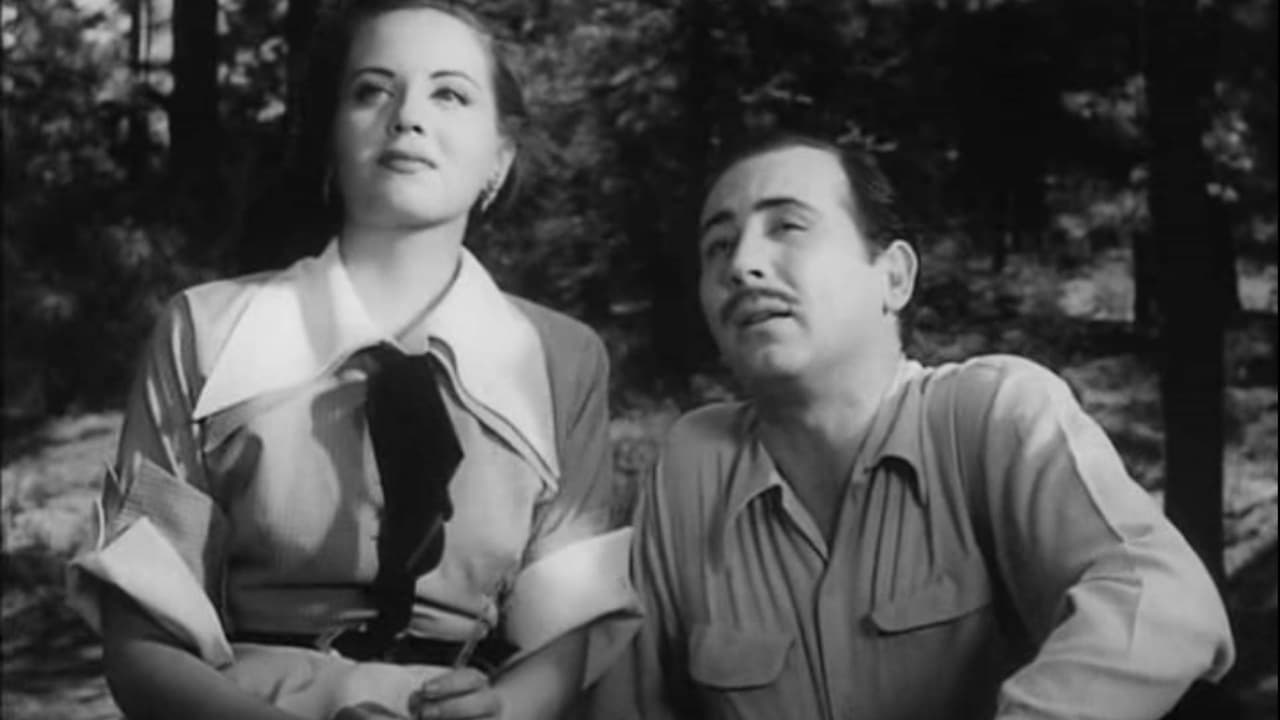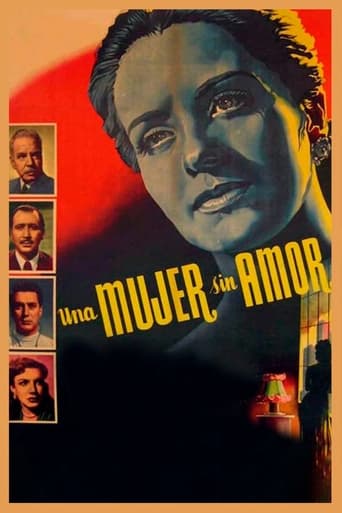


In Mexico, Rosario (Rosario Granados) has a marriage of convenience without love with her husband Don Carlos Montero (Julio Villarreal), who is a rigid and conservative antiquarian older and older than she. When Don Carlos punishes their son Carlitos (Jaime Calpe) without listening to him, the boy runs away from home. The engineer Julio Mistral (Tito Junco) finds Carlitos and brings him home, becoming a family friend. Soon Rosario and Julio fall in love with each other and have a love affair. Julio invites Rosario to move with him to Brazil with Carlitos but Don Carlos has a heart attack on the day that they would be traveling. Rosario sacrifices her true love to stay with Don Carlos and Carlitos. Many years later, Carlos (Joaquín Cordero) and his younger brother Miguel (Javier Loya) are graduated in medicine and love the same woman, Luisa (Elda Peralta). They both plan to rent a building for a medical clinic and work together. Out of the blue, a notary that is friend of the family tells that Julio has died and left his fortune to Miguel that was chosen by Luisa. The envious and male chauvinist Carlos questions the fidelity of his mother and the biological origin of his brother. "Una mujer sin amor", a.k.a. "A Woman Without Love", is a movie directed by Luis Buñuel with a melodramatic story of a woman that needs to choose between her true love and her family and the consequences of her choice in a chauvinist society. The gossips have never reached Carlos Montero or Miguel, but the weak and detestable Carlos. The conclusion can be easily understood by Latinos, with the brothers making up. My vote is seven.Title (Brazil): "Uma Mulher Sem Amor" ("A Woman Without Love")
... View MoreLike the films by director Luis Bunuel from the early 1950s, this one is much more direct and normal than his later films. The surrealism or anti-church themes of his work of hi and b earliest and later work is not evident here, though the film does still manage to challenge conventional morality and the idea of the happy family—also a theme in some of his later films. In this case, the film is about a marriage without much love and how a brief affair can come back to haunt you many years later. It comes from a short story by Guy de Maupassant.Rosario is a pretty young lady married to an older and somewhat cold man. She came from a poor family and marrying this prosperous antiques dealer offered her security but no passion. When their young son runs away, his parents are naturally hysterical. A nice man (Mr. Mistral) finds the boy and returns him home. But instead of just thanking the man, the happy father welcomes the man as a new friend and part of the family. All is initially good, but this also places the handsome young man and Rosario together—leading to them eventually falling in love. While the film does not say it directly, you learn later that they'd had a sexual encounter, as a child (Miguel) was born months after the relationship ended. No one but the two ex-lovers know that Miguel is their child and the unsuspecting husband just assumes the boy is his child.Twenty years later, a lawyer arrives to announce Mistral, a man they knew two decades ago, has died and inexplicably left his fortune to Miguel—a child he never even met. No one seems to think this odd—until later. Due to the prodding by an evil nurse who works with the two brothers (who are now both doctors), she gets the older brother to question WHY the younger brother has gotten the inheritance. This gets the older brother thinking—and a rift soon develops between the siblings. It's obvious that this is eating at the older brother's soul. This continues for some time and the viewer is left on the edge of their seat anticipating some sort of confrontation. How will the secret come out and what will become of this family?! I have seen quite a few Mexican films over the years (including several from Bunuel from this era) and I must say that "A Woman Without Love" is a standout film for several reasons. The most obvious is the quality of the production. This one looks as good as anything Hollywood was making at the time—and it's a lot nicer looking and more professional than a typical Mexican film. This may sound a bit rude, but it is clearly a much better looking film than was typical of this film industry. Additionally, the acting and direction are terrific—very direct and well-crafted. In fact, I am not sure the film could have been made much better had it been made elsewhere or with a more famous international cast. In addition, the story is very interesting and poses some interesting moral questions—it definitely makes you think and it's hard to watch it impassively.
... View MoreThis wholly typical Mexican melodrama is a modernization of Guy de Maupassant's "Pierre and Jean" which had already been filmed, straightforwardly, by Andre' Cayatte in 1943. Tellingly, Luis Bunuel dismisses it as his worst film in his celebrated memoirs, "My Last Breath"; although I disagree with him myself and nominate his musical comedy GRAN CASINO (1947) for that dubious honor, it is hard to argue that it is the least Bunuelian (and, reportedly, the most Mexican) of all his films! Strangely – for a Bunuel film of this period – it is also technically flawless, with high production values, notable sets and lush cinematography; in fact, I would go on to say that A WOMAN WITHOUT LOVE is never dull and most lesser directors would be proud to call this film their best work! Although we have here yet another improbable happy ending here (relatively speaking), it has none of the underlying parodic intent of SUSANA (1951) and is meant to be taken at face value. What is ironic, on the other hand, is the fate that befalls the titular character: a beautiful young woman, married to a much older man, falls in love with a handsome engineer but, for the love of her son and ailing husband, selflessly sacrifices her own happiness – only to be branded a wanton woman by her contemptuous older son (through whose absence as a kid she had met her lover in the first place) when it becomes clear that his younger brother was the fruit of that illicit affair! Given that the older son's relationship with his stern father was hardly a friendly one anyhow, what irks him is not his younger brother's new-found inheritance (which the latter is more than willing to share) or that he had also stolen his girlfriend/colleague – but the knowledge that his mother had been sexually active with another man during wedlock! Thus, he turns into an embittered misogynist taking out his ire on his sister-in-law, another lustful colleague he used to pursue in happier times and, especially, his brokenhearted mother. Besides, it is significant that while the mother's lover had been an industrious engineer, her elderly husband was a tightfisted antiquarian; even so, it is the former who dies young while the latter (forever on the brink of collapsing from a heart attack) survives him by many years – until dying, of all days, after one final confrontation with the older son (and one drink too many) at the wedding reception of his other son and, it should be noted, before ever finding out about his wife's infidelity! One of the unheralded pleasures of watching these modest movies from Bunuel's Mexican period back-to-back is recognizing the actors from one film to the next; therefore we have here Rosario Granados (as the mother; she was also in 1949's THE GREAT MADCAP), Tito Junco (as the engineer; he would later appear in both DEATH IN THE GARDEN [1956] and THE EXTERMINATING ANGEL [1962]), Julio Villareal (as the husband; he was also in GRAN CASINO), Joaquin Cordero (playing the older son; he was later to star in 1955's THE RIVER AND DEATH) and Javier Loya' (in the role of the younger son; he was not only in the director's earlier DAUGHTER OF DECEIT [1951], but would go on to appear in THE EXTERMINATING ANGEL).Although A WOMAN WITHOUT LOVE has, somewhat surprisingly, been given a R1 DVD release, I opted to acquire the film through alternative channels – a decision I now rather regret since my copy was intermittently plagued with instances of garbled sound! By the way, I do not know if it was intentional or not but, when Jeanne Bunuel (the Spanish film-maker's French widow) issued her own autobiography which, reportedly, was occasionally unflattering to her husband, she chose to give it a similar title to the film under review i.e. "Memoirs Of A Woman Without A Piano"!
... View MoreLuis Bunuel is known for his surrealist stuff, but let us remember that he is something of a leftist and well capable of delivering entertainment-for-the-lower-class: a.k.a., melodrama. This movie is consummate melodrama, following all the forms and procedures. Frankly, the directing and cinematography are absolutely gorgeous and Bunuel shows up so many contemporary and subsequent filmmakers with his form (and, may I add, focuses on dramatic blocking the type which puts this film up to Hitchcock-level directing). However, by five minutes in you know the story through and through because it's not only been done before, but regurgitated a million times since. Heck, instead of those American-Hispanic soap opera channels they have in the Southwest, they could just replace all of that with this film on a loop! For people who like melodrama, this movie is absolutely perfect and they should just buy it now. For others, it may be interesting as a small drama if they feel they want to spend the time (lucky thing: short running time). For the most part, however, Bunuel is smarter than this and this is as close as I've seen him get to "for a paycheck" style work.--PolarisDiB
... View More